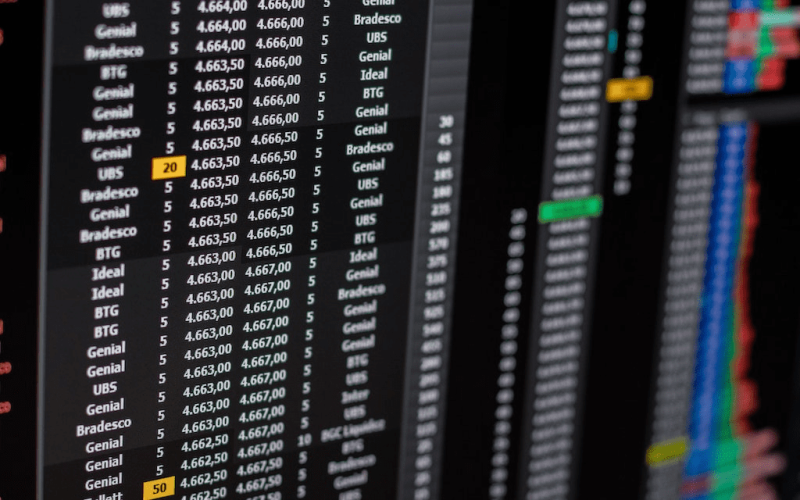
When explaining the stock market, investors frequently use the terms shares and stocks interchangeably. In essence, stocks affect a firm that issues shares, while shares are the investment unit investors make in a business.
However, there are circumstances where it's essential to use the terms following their exact definitions. So knowing the difference between stocks and shares may offer a more critical view of investing.
Also Read: How to Use Leading and Lagging Indicators for Success
Contents
- What Are Stocks?
- Types Of Stocks
- What Are Shares?
- Types of Shares
- Key Differences Between Shares Vs. Stocks
- How To Identify a Particular Company to Invest in The Stock Exchange
- Bottom Line
- FAQs
What Are Stocks?
Stocks are a category of “security” that signifies a portion of ownership in a business. A stock certificate, which indicates how many shares an investor-owned in a company or several companies, used to be given as proof of ownership.

When a company seeks to raise capital – funds for operations or development – it may issue stocks, which give investors the company's ownership, or borrow from investors.
Depending on how many shares an investor owns, some stocks pay monthly, quarterly, or annual dividend payments, representing a percentage of the issuing company's earnings. Such payments depend on the number of corporate equities an investor owns. Owning stock market value in a range of businesses is available to investors.
Types Of Stocks
The terms of selling and purchasing stocks differ based on the nature or type of the asset class. There are two major types of stocks:
- Common Stock: Common stock refers to ownership of a public company. Common stock owners choose the board of directors and cast ballots for corporate rules. Long-term rates of return are often higher with this type of stock ownership. However, the rights of ordinary shareholders to a company's stock in the case of liquidation begin only after investors, preferred shareholders, and other debt holders have been fully compensated.
- Preferred Stock: A different kind known as preferred stock gives investors ownership in a firm and the right to receive income from that company's operations. Compared to common stockholders, preferred stockholders have a more robust distribution entitlement (such as dividends). In corporate governance, preferred stockholders typically have no or minimal voting rights.
What Are Shares?
An investor can own a portion of the corporation called a share. In contrast to stock, which is a measure of equity (e.g., you own 10% of the public company), a share is a unit of ownership (for example, you own ten shares). Consider shares as a tiny chunk of a business.

Therefore, if a corporation were a pie, each share would represent a piece of that pie, with more slices representing more shares.
A publicly listed company's market capitalization is calculated by multiplying the stock's price by the total number of shares due or the number currently owned by shareholders. The precise amount can change over time, also known as shares outstanding.
Types of Shares
Investors can own shares in a variety of ways, just like stocks.
- Ordinary shares: Ordinary shares and common stock are the same things. Ordinary shareholders can vote on corporate issues and may be paid dividends.
- Preference shares: Preference shareholders typically receive dividends before common stockholders. Preference shareholders may receive payment from company money before common investors in the event of bankruptcy.
- Deferred shares typically offered to firm founders and executives are shares in which the holders are compensated after preferred and common stockholders in bankruptcy proceedings.

- Non-voting shares: As the title indicates, a shareholder does not have voting rights in connection with non-voting shares. Compared to holders of voting shares, holders of non-voting shares may have different income rights and rights to corporate assets in the case of liquidation.
Key Differences Between Shares Vs. Stocks
- Ownership: A person who owns stocks may be a shareholder in one or more firms, but an individual who owns shares in any corporation is a shareholder in just that one company.
- Denomination: Someone who has shares in a specific firm may own several shares with the same or equivalent value. Somebody who owns stocks may possess two separate equities with different values.
- Original issue: When a firm or group of companies needs to raise funds, stocks can be offered at any time; shares cannot.
- Nominal value: Unlike stocks, which have no nominal value, shares typically have a nominal value, such as $5 per share.
- Numeric value: A stock does not have a distinguishing number, a specific number associated with shares.
- Paid-Up Value: Shares can be fully or partially paid up, whereas stocks always are fully paid up by nature.
- How much is either preferred: Shares have a greater preference in terms of transfer than equities do since shares can be transferred in fractions, whereas stocks cannot.
How To Identify a Particular Company to Invest in The Stock Exchange
A ticker symbol is used to identify each company listed on a stock exchange. Typically, an exchange has a facility on its website that allows users to search by a company name or a ticker symbol.

You might also want to visit the websites of businesses that interest you. A company's website typically has a section with disclosure papers, such as financial statements, quarterly statements, news announcements, etc., that can help investors make educated decisions.
Bottom Line
Stocks vs. Shares are both important on their terms. And both Stocks vs. Shares help determine the ownership in the company or companies in their respective cases. Both Stocks vs. Shares are used interchangeably when discussing company ownership and stock markets.
FAQs
Should I Invest In A Company's Stock Or Shares?
Among both, “stock” has a more broad general expression. This is often used as a description of a share in a company. In contrast, “shares” have another broader meaning: they refer primarily to the ownership of an individual company.
How many Shares are in Stock?
Generally, startups own up to 10,000 million issued share capital shares. They can also add more shares as they become more extensive, and the company can increase its stock price by purchasing shares from investors and employees. Besides changing numbers, it becomes difficult to know the exact numbers. Shares, Stock & Equity, are the same.
Can Shares be Converted into Stock?
Shares are convertible to stock after payment and authorized by a shareholder agreement.
What are 100 Stock Shares Called?
A few different securities are generally available on exchanges in the round lots. In stocks, round lots are 100 shares or larger quantities equal to 100.
Should I Invest In One Or More Companies?
Beginners should start with one particular company at a time. It'll allow them to focus more on implementing and developing their trading strategies. On the other hand, experts may look into multiple companies to diversify their portfolios.
















